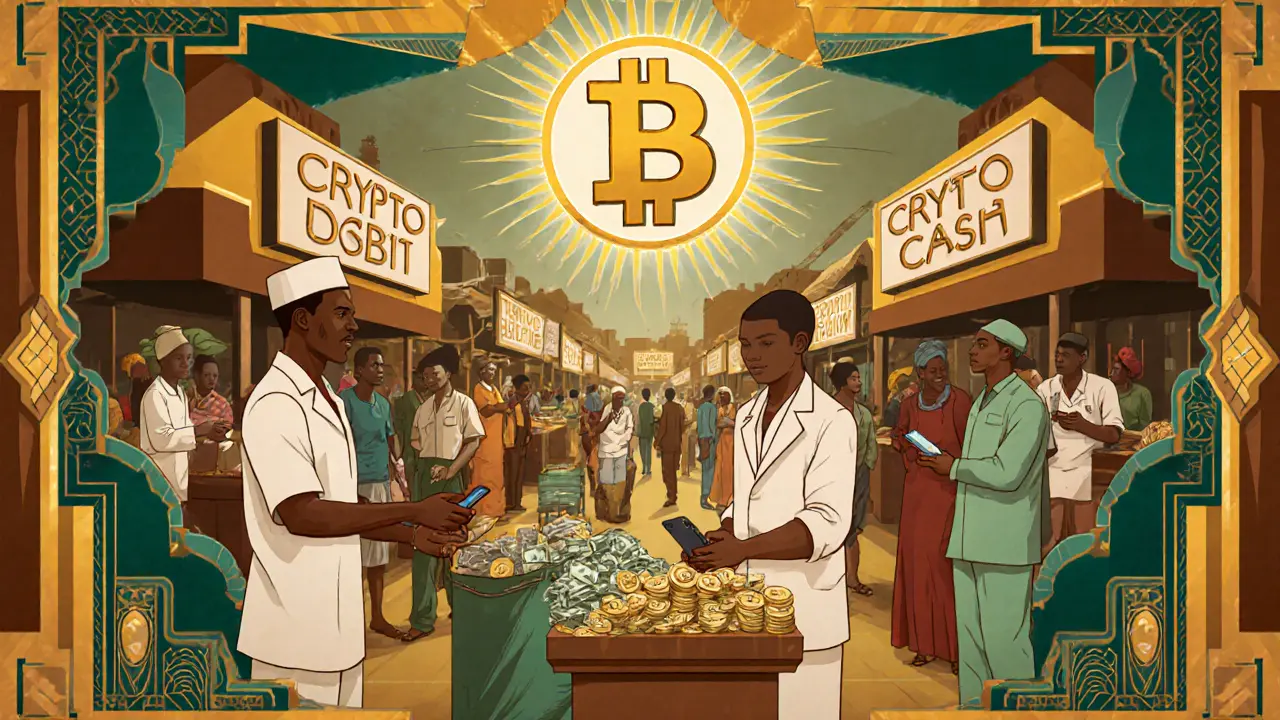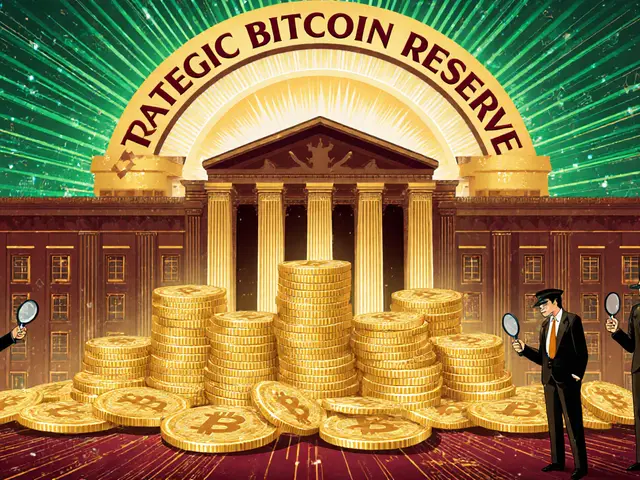P2P Crypto Transaction Cost Calculator
Send Money to Nigeria
See how much you can save by using P2P crypto instead of traditional remittance services
Results
Traditional Remittance
$0.00
8% fee (standard rate)
P2P Crypto
$0.00
0.2% fee (estimated)
Savings
$0.00
(0%)
Nigeria ranks #1 in global P2P crypto adoption - here’s why
Nigeria doesn’t just use cryptocurrency - it reinvented how it’s used. While countries like the U.S. and Germany rely on centralized exchanges and institutional platforms, Nigerians built an entire financial lifeline using peer-to-peer (P2P) crypto trading. No banks. No intermediaries. Just people trading Bitcoin, USDT, and other digital assets directly with each other - often in cash, via mobile money, or bank transfers. And it’s working. In the 12 months between July 2023 and June 2024, Nigeria recorded over $59 billion in P2P crypto transactions. That’s more than most developed economies. It’s not a fluke. It’s survival.
The story starts with failure. In 2017, Nigeria’s Central Bank told commercial banks to cut off crypto businesses. No accounts. No transfers. No access. Banks complied. But instead of killing crypto, the ban forced it underground. People didn’t stop trading - they got smarter. They started meeting in person. They used WhatsApp groups to find buyers and sellers. They created informal clearing systems. They turned every mobile money agent, every market stall, every university campus into a crypto node. What began as a workaround became a national infrastructure.
Why P2P? Because the banks weren’t helping
If you live in Lagos or Kano and need to send money to your cousin in the U.S., traditional remittance services charge up to 8% per transaction. That’s $80 on every $1,000. The naira has lost more than 75% of its value against the dollar since 2016. Inflation hit 24% in 2023. People aren’t saving in naira - they’re saving in crypto. Bitcoin, USDT, and even Dash became digital piggy banks. A 2024 survey found that 36% of Nigerian adults are unbanked. Another 40% are underbanked - meaning they have accounts but can’t access foreign currency or international payments. Crypto filled the gap.
P2P trading lets Nigerians bypass the system entirely. You find someone on Paxful, Binance P2P, or Quidax who wants to buy Bitcoin with naira. You meet at a café. You send them the cash. They send you Bitcoin. Done. No bank approval. No 3-day waiting period. No hidden fees. Transaction costs dropped by 60-80% compared to Western Union or MoneyGram. For millions, it’s the only way to preserve wealth, pay for online services, or receive income from abroad.
It’s not just Bitcoin - it’s a whole ecosystem
Nigeria’s crypto scene isn’t limited to Bitcoin. While BTC/Naira is the most traded pair, stablecoins like USDT dominate daily transactions because they hold steady value. Ripple (XRP) and Dash are popular too, especially for faster transfers. By 2020, Nigeria was already the third-largest crypto market globally by volume - behind only the U.S. and Russia. Today, an estimated 22 million Nigerians (about 10% of the population) use crypto regularly. That’s more than the total number of crypto users in Germany, France, or Canada.
What’s more, the users aren’t just tech elites. They’re market traders, students, nurses, drivers, and small business owners. A 2025 report from Chainalysis showed Nigeria ranked 6th globally in crypto adoption - but if you look at P2P volume alone, Nigeria leads every country. Why? Because in Nigeria, crypto isn’t an investment. It’s a utility.
The turning point: When the government stopped fighting and started partnering
In late 2023, the Central Bank of Nigeria did something unexpected. It lifted the ban. Not because it loved crypto - but because it realized it couldn’t stop it. Banks could no longer ignore the $60 billion flowing through P2P networks. So they adapted. Licensed exchanges like Quidax, Patricia, and Luno began integrating directly with Nigeria’s Inter-Bank Settlement System (NIBSS). Now, you can buy crypto with a bank transfer that clears in minutes. Fraud detection improved. Compliance systems were built. In 2025, Nigeria passed the Investments and Securities Act, officially recognizing digital assets as financial securities. That’s not just regulation - it’s institutional validation.
The result? A hybrid system. Grassroots P2P trading still drives the market, but now it’s backed by formal infrastructure. The blockchain network Zone partnered with NIBSS to modernize interbank settlements, reducing fraud and speeding up payments. Moniepoint, a Nigerian fintech company built on crypto-friendly infrastructure, became a $1 billion unicorn after Google invested. Nigeria’s fintech scene is now one of the fastest-growing in the world - and crypto is at its core.
How Nigerians actually use crypto day-to-day
Here’s what it looks like in real life:
- A university student in Abuja gets paid in USDT from a freelance job on Upwork. They convert it to naira via P2P to pay rent.
- A small business owner in Port Harcourt buys inventory from China using USDT - saving 70% on fees compared to bank wire transfers.
- A mother in Kano receives remittances from her son in the UK as Bitcoin. She cashes out at a local agent for naira to buy food.
- A tech startup in Lagos pays its developers in USDT to avoid currency devaluation losses.
Reddit threads, Telegram groups, and WhatsApp communities are full of tips: “How to avoid scams on P2P,” “Best time to buy USDT,” “Which agents have lowest spreads?” Nigerian crypto users aren’t waiting for tutorials - they’re teaching each other. YouTube channels like “Crypto with Tolu” and “Naija Crypto Hub” have millions of views. Local meetups in Ibadan, Enugu, and Calabar help newcomers learn wallet security and how to verify buyers.

The risks? Yes. But the rewards are bigger
It’s not perfect. Price volatility still hurts. Some P2P platforms have been hacked. Scammers still exist - especially those pretending to be “crypto gurus” selling fake courses. A few users lost money to schemes like MMM or Bitconnect in the early days. But the community learned fast. Today, most traders use escrow services on Binance or Quidax. They check seller ratings. They avoid cash deals with strangers. They use two-factor authentication. The learning curve takes 2-4 weeks to get comfortable, 2-3 months to master advanced strategies like arbitrage between exchanges.
Regulatory uncertainty remains. The CBN could reverse course again. The Nigerian government is also testing its own digital currency, the eNaira. But so far, the eNaira hasn’t matched the speed, accessibility, or cost-effectiveness of P2P crypto. Most Nigerians still prefer USDT over eNaira - because they can trade it globally, instantly, and without government tracking.
What Nigeria’s success means for the rest of the world
Nigeria didn’t win because it had the best technology. It won because it had the most urgent need. When traditional finance fails, people find alternatives. Nigeria’s crypto revolution proves that when people are locked out of the system, they’ll build their own - and they’ll make it better.
Other countries with high inflation, weak banks, or capital controls - like Argentina, Turkey, and Vietnam - are watching closely. Experts from Cornell and ChainUp say Nigeria is now the model for emerging markets. It shows that crypto adoption isn’t about wealth - it’s about necessity. And when necessity meets innovation, the results are unstoppable.
Nigeria’s P2P crypto market isn’t just big - it’s alive. It’s growing. And it’s changing how the world thinks about money.
Why is Nigeria #1 in P2P crypto trading?
Nigeria leads because its people needed an alternative to a failing financial system. High inflation, a collapsing naira, banking restrictions, and expensive remittances pushed millions to use P2P crypto. With over $59 billion in transactions in 2023-2024 and 22 million users, it’s the most practical solution for everyday financial survival.
Is crypto legal in Nigeria?
Yes. After banning crypto transactions in 2017, the Central Bank of Nigeria reversed its stance in late 2023. Licensed exchanges can now operate legally, and banks can process crypto-related payments. The 2025 Investments and Securities Act officially recognizes digital assets as financial securities, giving them legal standing.
What cryptocurrencies do Nigerians use most?
Bitcoin (BTC) and Tether (USDT) are the most traded. USDT dominates daily transactions because it’s stable and used to hedge against naira devaluation. Dash and Ripple are also popular for faster transfers. Many users avoid volatile altcoins due to risk.
How do Nigerians buy and sell crypto without banks?
They use P2P platforms like Binance, Quidax, and Paxful. Buyers and sellers connect directly, then complete transactions via bank transfer, mobile money (like Paga or Opay), or even cash meetups. Escrow systems protect both sides. Many traders also use local agents who act as intermediaries for cash deposits.
Can I use Nigerian crypto platforms from outside Nigeria?
Some platforms like Binance P2P allow international users to trade naira, but most local exchanges like Quidax and Patricia require Nigerian ID and bank details. You can’t open an account without local verification. However, you can send crypto to a Nigerian wallet if you have the recipient’s address.
What’s the future of crypto in Nigeria?
The future is hybrid. Grassroots P2P trading will continue, but it’s now merging with regulated infrastructure. NIBSS blockchain integration, institutional adoption, and fintech growth (like Moniepoint) show crypto is becoming part of Nigeria’s financial backbone. Analysts predict Nigeria will become Africa’s largest crypto economy by 2027.



